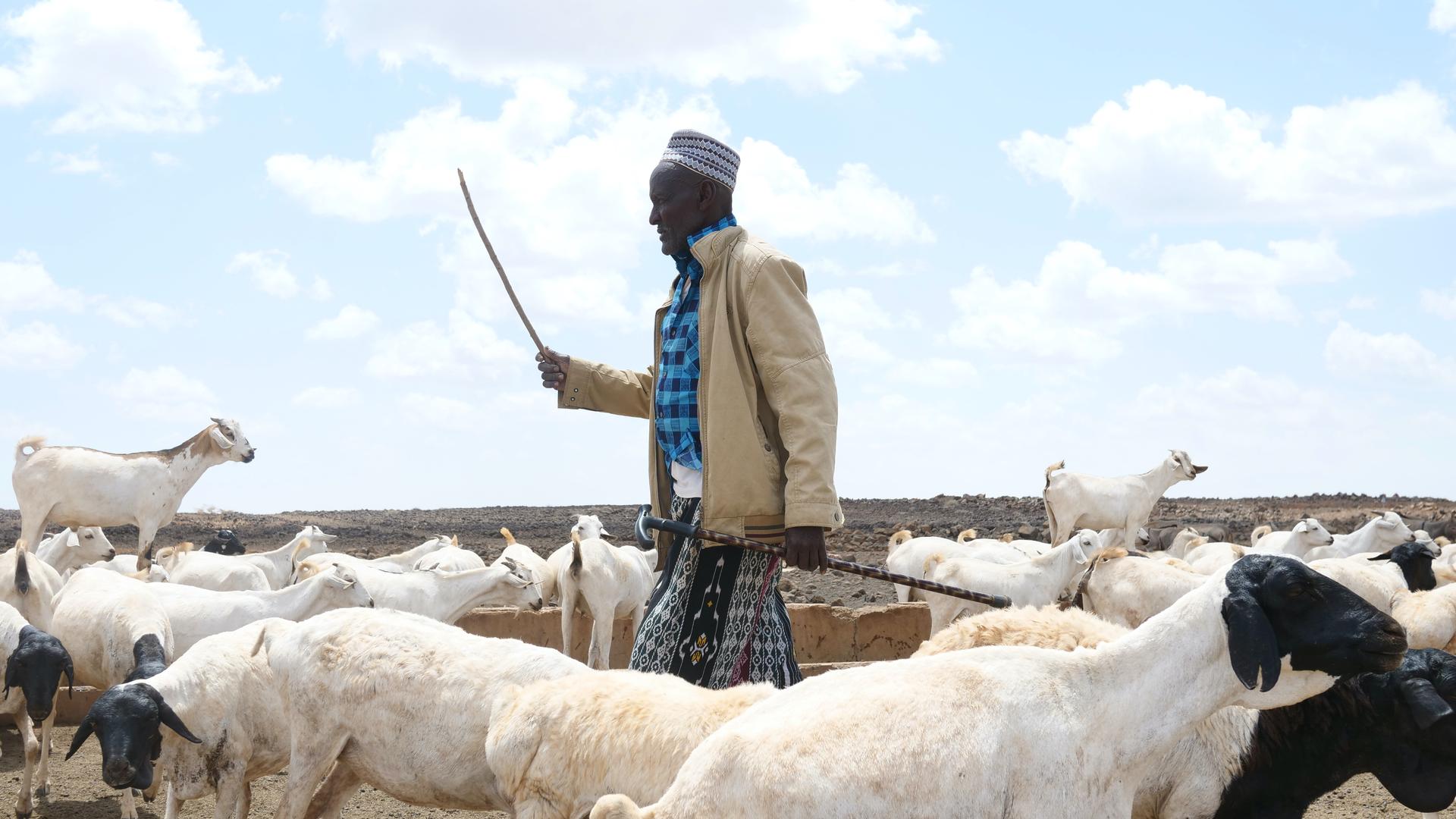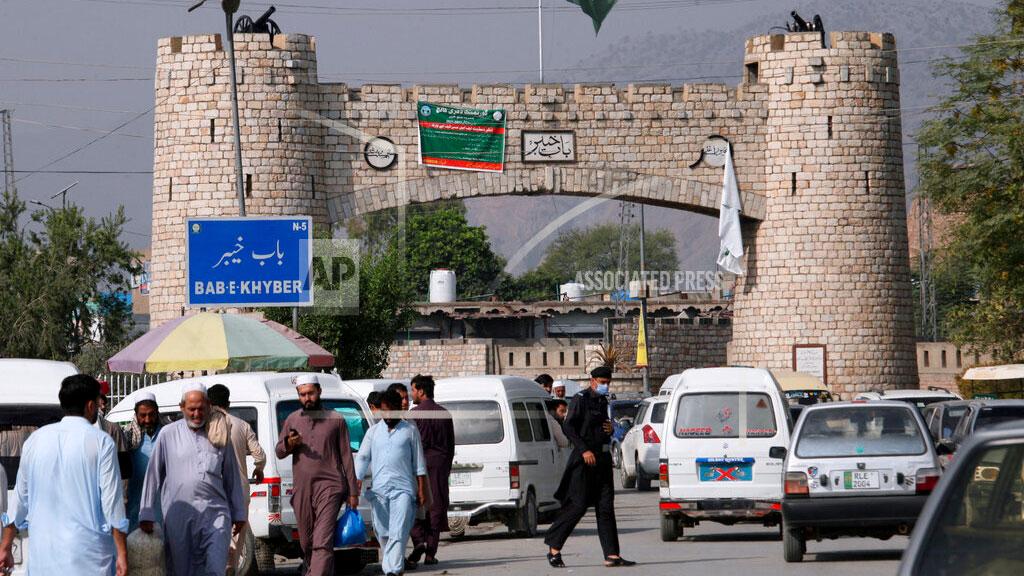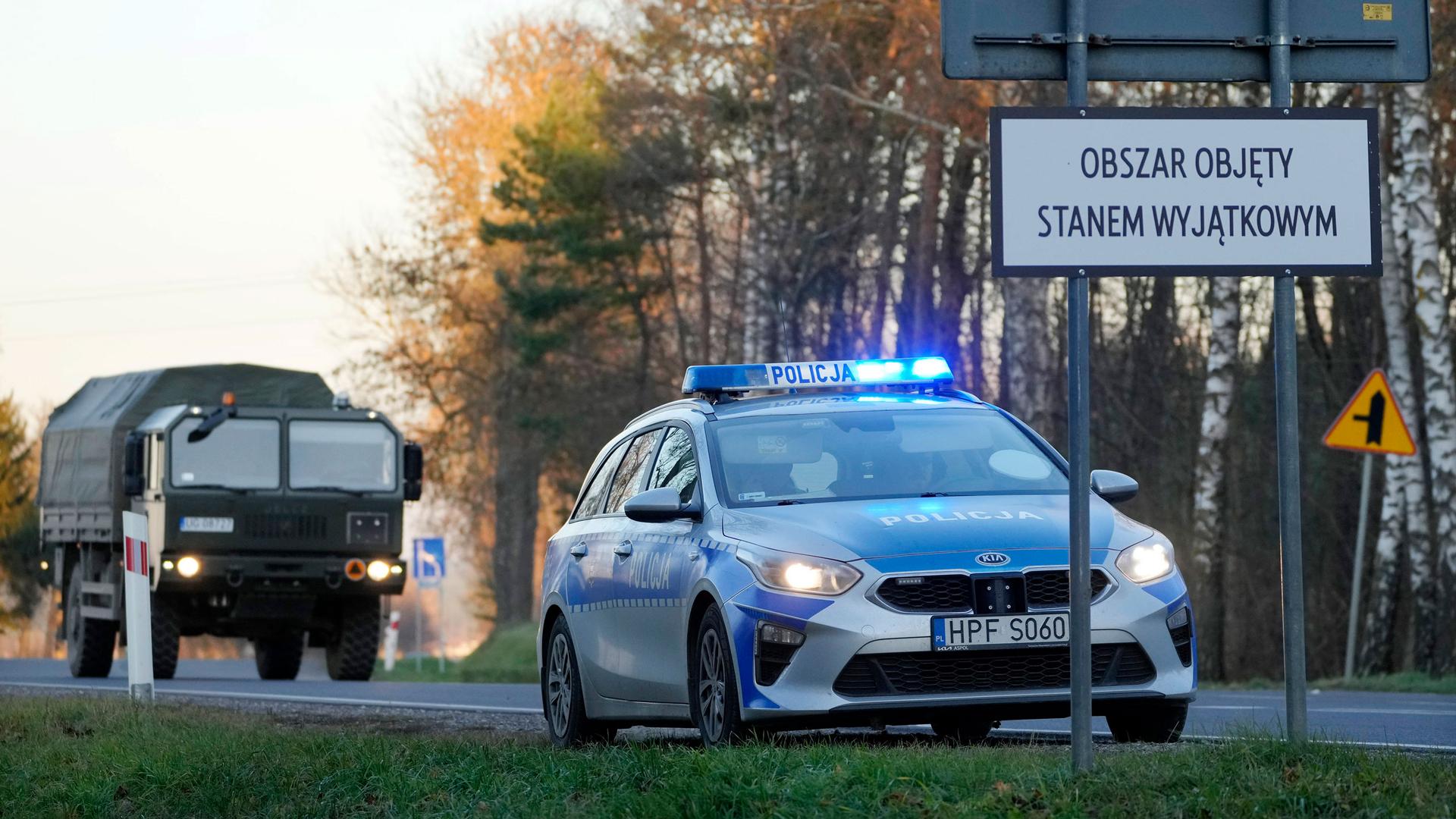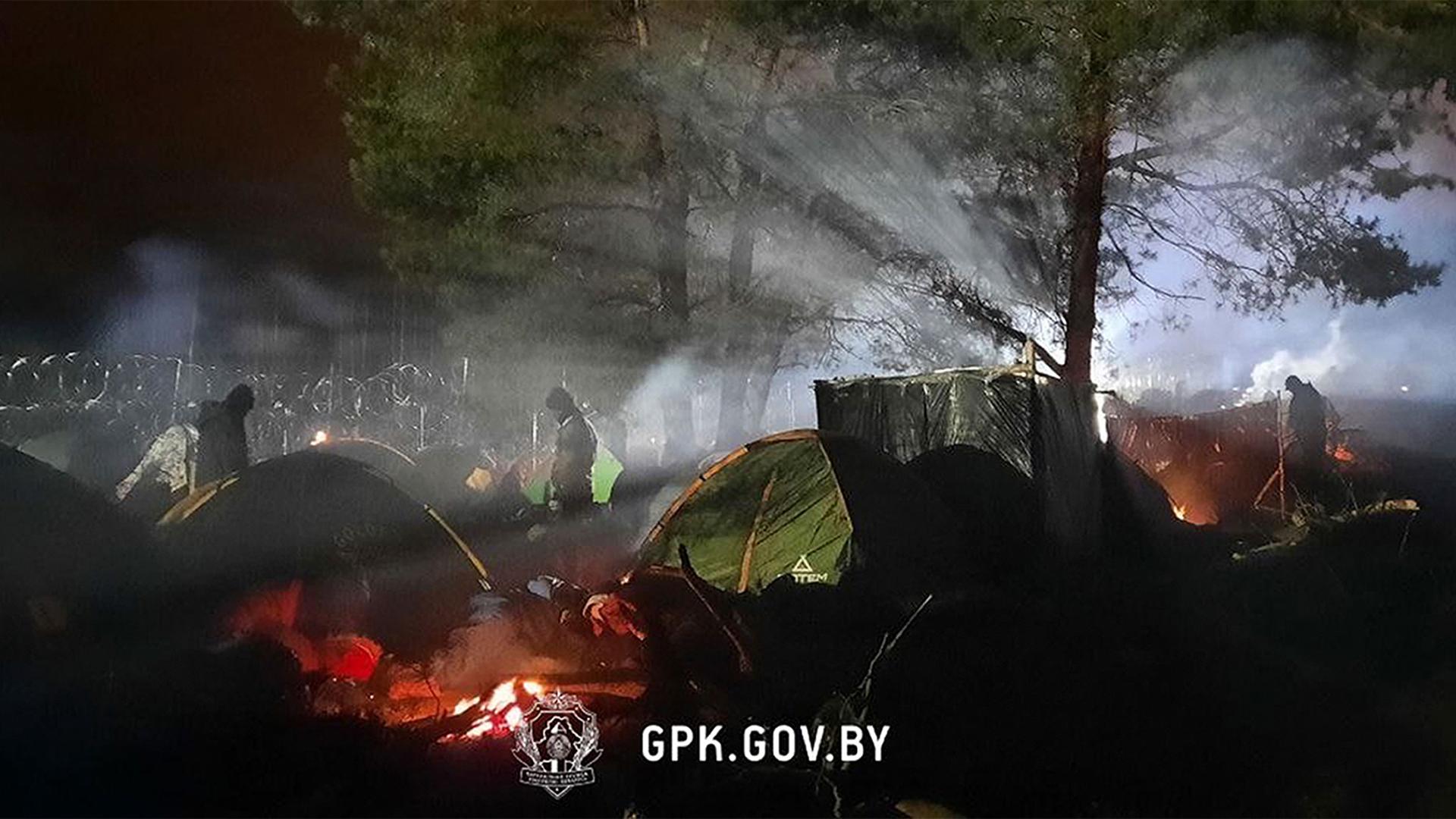EU officials accuse Belarus of creating a new migrant crisis
A view of a tent camp set by migrants from the Middle East and elsewhere gathering at the Belarus-Poland border near Grodno, Belarus, Nov. 10, 2021.
Top of The World — our morning news roundup written by editors at The World. Subscribe here.
Poland-Belarus
Western officials are accusing Belarus of intentionally trying to create a new migrant crisis in Europe. Poland has now amassed thousands of troops on its border with Belarus to keep out migrants who recently tried to push across the border, repeatedly attempting to tear down the razor-wire fence erected on Poland’s eastern border. At least 2,000 people are now camped out there in freezing temperatures, caught in the middle of an international row. EU officials say Belarusian President Alexander Lukashenko is letting asylum-seekers from the Middle East into his country, and then funneling them toward the EU, an allegation Lukashenko has denied.
Ethiopia
Ethiopian authorities have detained more than 70 drivers working with the United Nations in aid delivery, according to a UN spokesperson. It follows the detention of 16 UN staffers and their families on Tuesday, all of whom were ethnic Tigrayans. Government spokesman Legesse Tulu said they were detained because of “participation in terror” unrelated to their work, but didn’t provide further details. Ethiopian officials say they’re detaining people suspected of supporting the Tigray People Liberation Front.
COP26
A draft of the Glasgow agreement was published on Wednesday at the COP26 climate conference in Glasgow, Scotland. The document includes language that says the world should be aiming to limit global warming to 1.5 degrees Celsius, and acknowledging the role of fossil fuels in the climate crisis. Consensus on the draft is required, and nearly 200 countries will now negotiate its details over the next few days. It urges countries to strengthen their climate plans by the end of next year, while calling for the phasing out of coal and fossil fuel subsidies. Back in 2015, a group of the most climate-vulnerable island nations succeeded in getting the target of limiting 1.5 degrees Celsius written into the Paris agreement. They’re back in Glasgow for COP26 to make sure the world stays on target. The World’s Carolyn Beeler is in Glasgow and spoke to Mohamed Nasheed, former president and current speaker of parliament for the Indian Ocean nation of the Maldives about what’s at stake.
From The World
Ongoing drought devastates parts of Kenya

A monthslong drought in parts of Kenya is endangering the livelihoods of millions of people who rely on livestock. Humanitarian organizations are warning that countless people could be at risk of hunger if the rains don’t come soon.
Canada promised to resettle 40,000 Afghans. Many are still waiting for answers.

Earlier this year, the Canadian government pledged to resettle 40,000 Afghans, but advocates, and those with loved ones in Afghanistan, say the process must become faster and more transparent.
It takes a village to run The World
Have you ever wondered how an idea becomes a story on The World?
It starts with our reporters and producers, who pitch their ideas for stories or interviews during the morning meeting. Editors ask questions like, “why this story?” And “why now?” Once a pitch is greenlit, reporters chase down the story and producers look for a compelling interview guest. Then, together with editors and engineers, they bring it to life on air.
But our work isn’t possible without the generosity of listeners like you. Make your gift before Nov. 30 to support our nonprofit newsroom and help us unlock a $67,000 match!
Bright spot
Surprise! Yes, that is what happened to the Sotelo family in Lima, Peru, after buying what they thought was a purebred husky for about $13. Neighbors started complaining about “Run Run” chasing and eating guinea pigs, chickens and other domestic animals in the neighborhood. It turns out the beloved pet had a mistaken identity. Run Run was a trafficked Andean fox. ?
In case you missed it
Listen: Migrant crisis continues on Belarus-Poland border

On the border between Belarus and Poland, there’s been an ongoing standoff between thousands of migrants — mostly from Africa and the Middle East — and Polish border guards. EU countries like Poland have been steadfast in their attempts to deny entry. And, this week, many foreign travelers were finally allowed to enter the US, after a year and a half of intense travel restrictions. But New Zealand remains one of the most closed-off places in the world — even for citizens to reenter — proving most challenging for separated families. Also, the Biden administration has approved the sale of 280 air-to-air missiles for the Saudi air force. Bomb sales to Saudi Arabia are still on hold, but the US is reluctant to block all weapons sales as leverage to encourage Riyadh to improve its human rights record or end its war with the Houthis in Yemen.
Don’t forget to subscribe to The World’s Latest Edition podcast using your favorite podcast player: RadioPublic, Apple Podcasts, Stitcher, Soundcloud, RSS.
